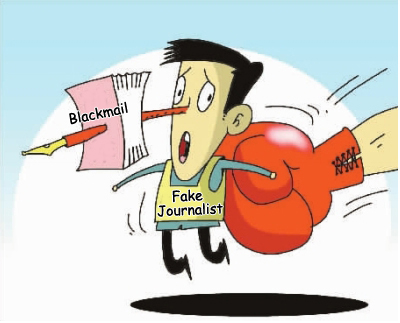Construction of journalism ethics urgently needed

Violations of both the law and journalism ethics frequently occur in the new media era. They have severely damaged the credibility of news media and have also undermined social order.
Provincial-level journalism ethics committees have been successively founded nationwide. The Journalism Ethics Committee of the All-China Journalists Association was established on Dec. 29, 2015. Scholars pointed out that the complex world economic situation and rapid development of communication technology pose new challenges to journalism ethics, and that it is the right time to push forward the institutional construction of journalism ethics committees.
Multiple phenomena
Ding Baiquan, a professor from the School of Journalism and Communication at Nanjing University, said that journalists should abide by a professional code of ethics. They must adhere to correct guidance of public opinion, acquire sources in legitimate ways, truly report facts and maintain the anonymity of sources, Ding said.
Song Xiaowei, a research fellow from the Institute of Journalism and Communication at the Chinese Academy of Social Sciences, said that conflicts between journalism ethics and other professional ethics as well as common social ethics are ongoing. More attention should be paid to finding ways to avoid and properly cope with such conflicts, Song added.
Hu Chunyang, an associate professor from the School of Journalism at Fudan University, said that in the new media age, violations of both the law and journalism ethics frequently occur, such as news blackmail, paid news and fake news items. These have severely damaged the credibility of news media and have also undermined social order.
In the new media era, some reporters flock to funny trifles and gossip, neglecting serious topics related to social transformation and social problems, Hu said.
Lasting mechanisms
The journalism ethics committees established one after another nationwide will include all news media and journalists in the coverage of supervision, playing a bigger role in intensifying the construction of professional ethics and resolving prominent problems in the press through news reviews, apologies via media, notification and exposure.
“Properly organized long-term mechanisms of governance are needed to strengthen the construction of journalism ethics. The overall level of professional ethics can be promoted through self-consciousness of journalists. Meanwhile, journalism public administrative departments should also provide effective restraints and specialized guidance,” Song said.
Self-discipline needed
Hu said people should be clearly aware that ethics mean not only heteronomy but also autonomy. Ethics construction is an arduous process of self-restraint. Heteronomy may not work without journalists’ self-discipline, Hu said.Therefore, apart from supervisory organizations within the industry such as journalism ethics committees, it is also necessary to establish and improve supervisory institutions of journalism ethics, with non-governmental organizations serving as the main body.
Song said that journalists need to constantly foster the sensibility to ethical problems in journalism. They should promote the ability to think not only from the perspectives of politics and law but also from the perspective of ethics. They need to master some basic action plans in ethical decision-making to deal with conflicts concerning ethics.
Zhang Jie is a reporter at the Chinese Social Sciences Today.
